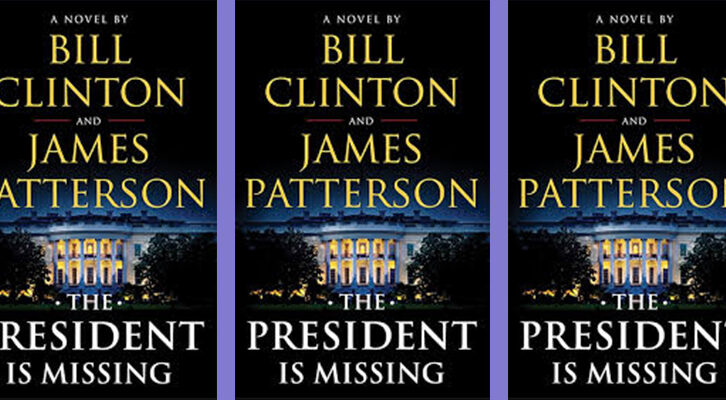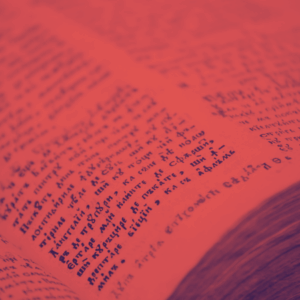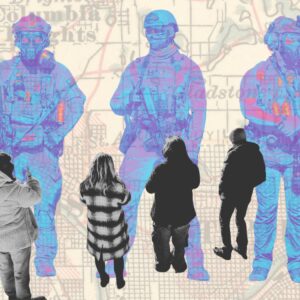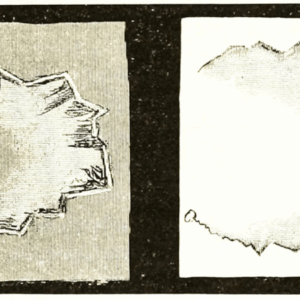
Rob Spillman on Craving Danger and Writing the Past
In Conversation with the Author of All Tomorrow's Parties
“I never wanted anything more than this feeling of jumping into a dark abyss and not knowing if I would be able to escape,” writes the author and editor Rob Spillman in his absorbing new memoir All Tomorrow’s Parties. He is describing an early childhood memory—an excursion with his father, an expat American musician, from West to East Berlin to purchase “state subsidized and politically appropriate” sheet music with a wad of contraband US dollars stuffed into his little shoe. The fear and thrill of not being caught became an addiction: “I came to crave this danger, savored it as much as my seemingly inexplicable survival… but quietly, the desire so surreptitious that you would never, ever know that about me.”
He’s right. As we calmly sip coffee in a Brooklyn cafe, nothing about Spillman’s demeanor indicates an impulsive desire to “jump into a dark abyss.” Instead, Spillman casts the air of a reluctant star: he’s wearing a glacial blue tweed jacket and his voice often dips down in register from deep to a whisper within the span of a sentence, like one aware of his own echo.
It’s this sentiment for recklessness, however, that lies at the heart of All Tomorrow’s Parties, and contradicts the wide-ranging achievements Spillman has built his reputation upon. In 1998, he co-founded the fiercely successful independent literary magazine (and now institution) Tin House, and in 2015 was awarded the PEN/Nora Magid Award for Editing. He has written for a bevvy of illustrious magazines, and has been married to the great writer and editor Elissa Schappell for 27 years. One of their children even fronted a successful all-female punk band. The man is, in a word, blessed.
It’s the happiest possible outcome for a man who, at the age of 25, was on an entirely different beat, that of a search for identity. In All Tomorrow’s Parties, Spillman examines two eras of life before he found his footing, his Berlin-based childhood and American adolescence as one, and his grand return to Berlin as a young, married adult in the other. All Tomorrow’s Parties isn’t a memoir of that triumph, it is instead document of the kind of utter, absolute, and necessary failure that often precipitates unforeseen accomplishment.
Born in December of 1964 to American expat musicians living in West Berlin, Spillman had an atypical childhood. He was raised primarily by his father in the city after his mother returned to the States only a couple of years after Spillman was born. His earliest memories, aside from covert purchases of sheet music, include watching tanks patrolling the streets and a painful first memory of his father being booed after jesting a John Cage impersonation. When he was nine, the two relocated to the Rochester, New York where the elder Spillman had taken a job. Later, after a cousin asks if he now lives in Rochester, he nods in affirmation, but thinks: “No, I am a Berliner. I will always be a Berliner.”
Rather than write his memoir linearly, Spillman builds the tension by sequencing the two periods he has chosen to examine. “I tried to write it straightforward for a long time,” he tells me as his finger traces a diagram on the coffee table, “Then I experimented with a bunch of approaches, none of which worked. It was only when I started bi-alternating that chapters that everything clicked. I could play with the delivery of information, drop hints about something in the Berlin section, that was coming up in my childhood. By manipulating time, I could engage with these memories more and have more fun writing about them.
Most of it wasn’t fun, Spillman concedes. His parents’ divorce had to do with his mother discovery of his father’s homosexuality, still a tender subject: “It took me ten years to write this book. I was trying to be honest with my own failures without being ‘woe is me.’ But it also took a long time to write about my parents’ situation without getting angry doing so.” He sits back and for a long moment, Kurt Cobain and the white noise of the cafe fill the silence. “Most of my anger,” he continues, “stemmed from a lack of information. And I had to respect that.”
Spillman’s peripatetic childhood keeps his “rebel without a cause” narrative momentous and magnetizing, always on the brink of a big reveal. Spillman teases it out slowly—he moved in with his mother, and after they settled in what he describes as “racist and close-minded” late 70s Baltimore, Spillman found solace in hardcore punk and cross-country running “until I pulled my IT band,” he says with a dismal laugh. “Then I just put all my time into being a writer.” Though he breezes through classes, he attends the University of Rochester early only to fail out after a single semester: “I had no idea what I was doing.”
Nor does he have seem to have any clue about his reasons for moving back to Berlin years later. After convincing Elissa to try out Portugal for a writing retreat, the young couple along with a friend, set up camp in East Berlin circa 1990, months before reunification. Spillman is supposed to be there to cover a story for Sports Illustrated, but he fails to write it. He fails to write anything, actually: “I had this perverse notion that I didn’t want to write about Berlin while I was there,” he tells me with a shake of his head. “I didn’t want to become part of its gentrification writing about how great it was to live there. It was really stupid! I could have reported on the politics of what was going on, and the sort of land grab after the Wall fell, I could have been part of the resistance to what was going on.”
And while there are many make-shift bars, dirt cheap rent, and countless raves blasting “a lot of Michael Jackson remixes” he recalls with a chuckle, Berlin puts a strain on the couple’s relationship. It is only when Elissa has a seizure that Spillman is knocked into reality and takes her home. “I had to admit that I had failed at one dream and needed to start chipping away at another,” he tells me, “but that I needed to go home to do that, and that home was no longer Berlin.”
I ask him what the next section of All Tomorrow’s Parties would be if he had kept writing: “It would have been pretty bleak,” he offers draining the last of his coffee. “It would have been of us starting over in New York, starting from scratch. But also giving myself over to New York and Elissa, and finally establishing ourselves here, firmly.”
As for Berlin: “I still love it, but it’s a completely different city now and it keeps changing. I have enough trouble keeping up with New York.”
Michael Barron
Michael Barron is a freelance writer and a former editor at New Directions. He lives in Brooklyn.



















